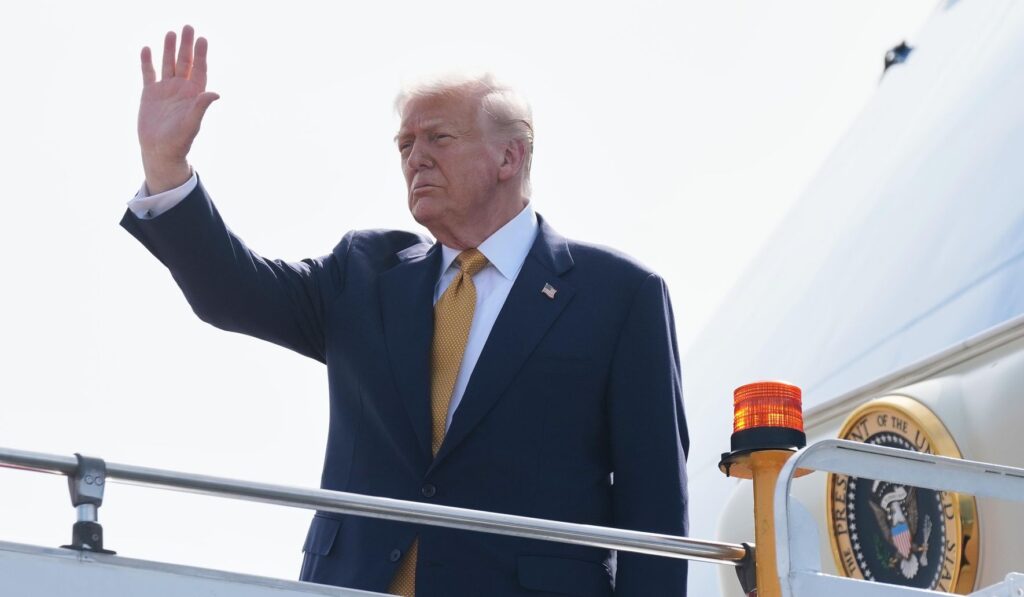President Trump has landed in Japan to meet with new Prime Minister Sanae Takaichi at a moment when trade and security are front and center. This visit is being framed as a chance to reset negotiations and sharpen cooperation across the Pacific. The stakes are clear: stronger U.S. leadership, fairer trade terms, and a steady regional balance that benefits both allies.
“President Trump arrived on Monday in Japan where new Prime Minister Sanae Takaichi is banking on building a friendly personal relationship with the U.S. leader to ease trade tensions.” That setup matters because personal rapport between leaders can speed deals and cut through bureaucracy. In Washington, conservative policymakers see this kind of relationship as a tool to secure concrete wins for American workers and companies.
Washington’s approach under Republican leadership has been blunt and strategic: push for reciprocity, protect critical industries, and use America’s leverage wisely. Japan is a major trading partner and a critical security ally, so negotiating from strength makes sense. The practical goal is not confrontation but fair terms that end one-sided arrangements and bring jobs back to the United States.
Expect the conversation to touch on supply chain resilience, especially for semiconductors and advanced manufacturing. Both countries rely on stable production for chips and critical components, and recent disruptions proved vulnerability. A closer U.S.-Japan industrial partnership can secure supply lines while keeping key technologies out of rival hands.
On security, the alliance remains the backbone of regional deterrence against rising threats. A clear, coordinated posture reassures partners and keeps bad actors in check without provoking unnecessary escalation. Republicans favor strong defense commitments tied to cost-sharing and burden sharing that make allies carry more of the load.
Trade is going to be practical, not ideological. Negotiations will zero in on tariffs, market access, and unfair practices that hurt American exporters. The message from a Republican viewpoint is straightforward: open markets must be fair, and trade deals should reward American innovation and labor, not hollow them out.
Sanae Takaichi’s outreach signals Tokyo wants a quick, results-driven partnership rather than prolonged negotiations. That aligns with a United States aiming to convert political chemistry into enforceable agreements. Both sides benefit if they move quickly to lock in terms that bring predictable rules and transparent enforcement.
There will also be a focus on technology and intellectual property protections, where Japan and the U.S. largely share concerns. Strong protections encourage investment and innovation on both sides while preventing theft and illegal technology transfers. Republicans argue this kind of cooperation is essential to sustaining American competitiveness and national security.
Outside the formal talks, optics matter for domestic audiences in both countries. A productive meeting can reassure voters that leaders prioritize national interests and deliver tangible results. For Republican policymakers, success looks like enforceable changes, strengthened alliances, and a clearer path to economic growth that rewards American workers.



